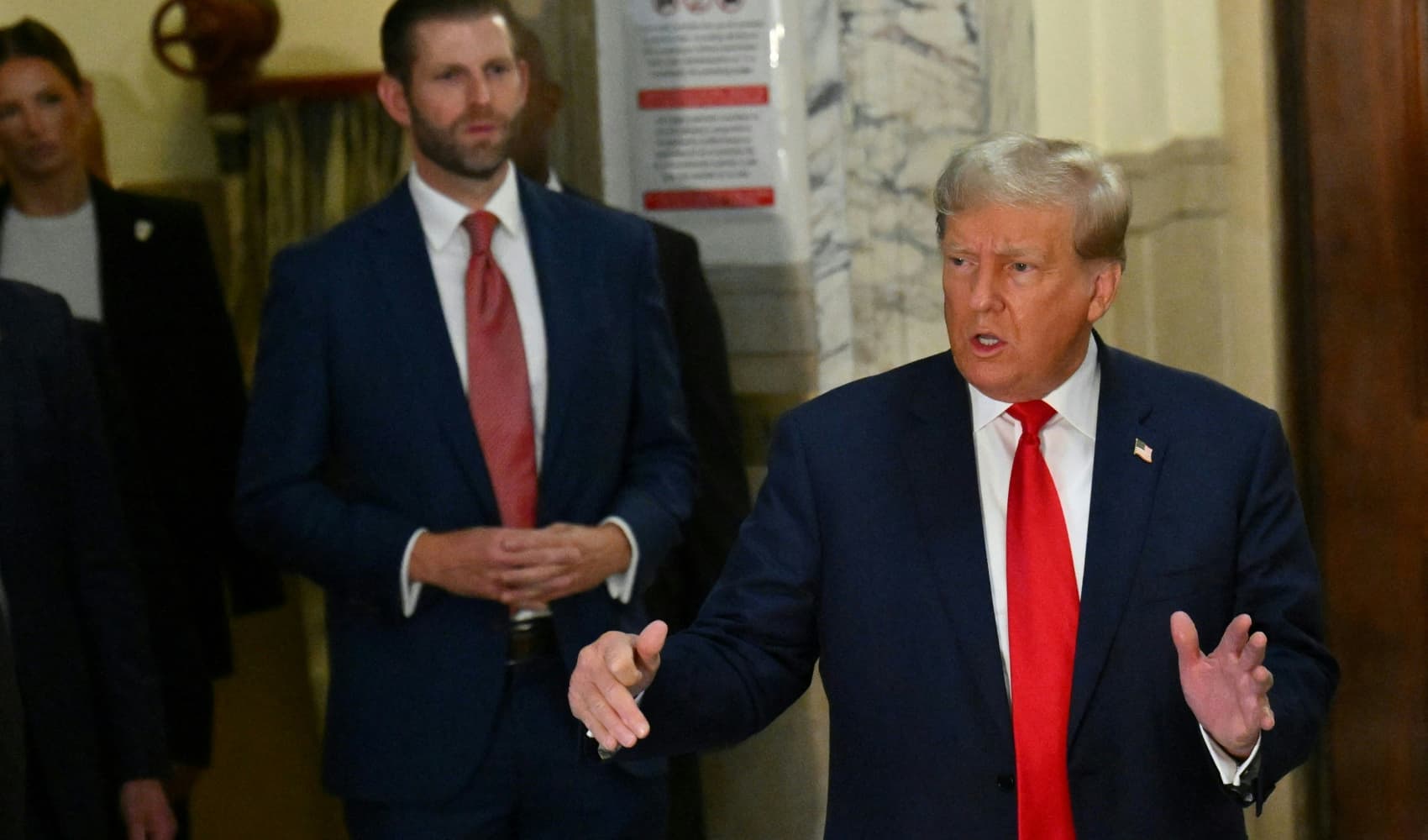
A New York appeals court on Monday agreed to hold off collection of former President Donald Trump's $457 million civil fraud judgment — if he puts up $175 million within 10 days.
If he does, it will stop the clock on collection and prevent the state from seizing his assets while he appeals.
The development came just before New York Attorney General Letitia James was expected to initiate efforts to collect the judgment.
Earlier this week, Trump’s lawyers pleaded for a state appeals court to halt collection, claiming it was “a practical impossibility” to get an underwriter to sign off on a bond for such a large sum.
The ruling was issued by the state’s intermediate appeals court, the Appellate Division of the state’s trial court, where Trump is fighting to overturn a judge’s Feb. 16 finding that he lied about his wealth as he grew the real estate empire that launched him to stardom and the presidency.
US & World
Get Tri-state area news delivered to your inbox. Sign up for NBC New York's News Headlines newsletter.
Trump's debt stems from a months-long civil trial last fall over the state's allegations that he, his company and top executives vastly puffed up his wealth on financial statements, conning bankers and insurers who did business with him. The statements valued his penthouse for years as though it were nearly three times its actual size, for example.
Trump and his co-defendants denied any wrongdoing, saying the statements actually lowballed his fortune, came with disclaimers and weren't taken at face value by the institutions that lent to or insured him. The penthouse discrepancy, he said, was simply a mistake made by subordinates.
Engoron sided with the attorney general and ordered Trump to pay $355 million, plus interest that grows daily. Some co-defendants, including his sons and company executive vice presidents, Donald Trump Jr. and Eric Trump, were ordered to pay far smaller amounts.
Under New York law, filing an appeal generally doesn't hold off enforcement of a judgment. But there's an automatic pause if the person or entity posts a bond that covers what's owed.
The ex-president's lawyers have said it's impossible for him to do that. They said underwriters wanted 120% of the judgment and wouldn't accept real estate as collateral. That would mean tying up over $557 million in cash, stocks and other liquid assets, and Trump's company needs some left over to run the business, his attorneys have said.
The attorney general's office objected to the freeze.




